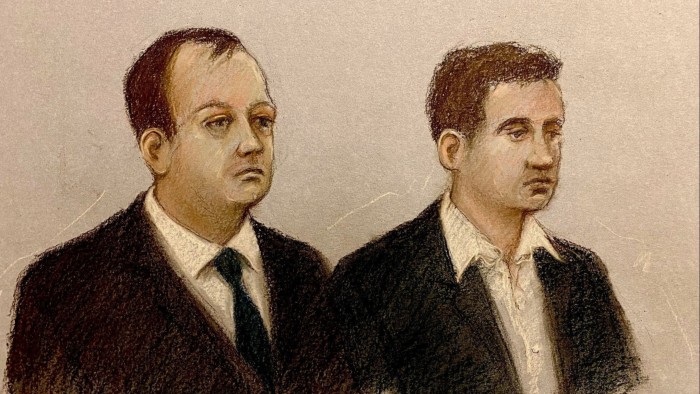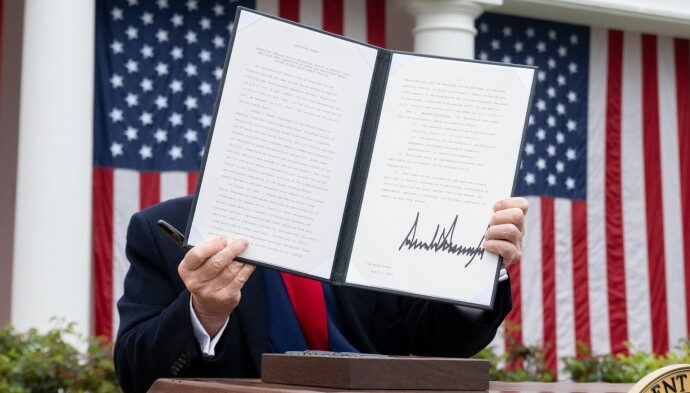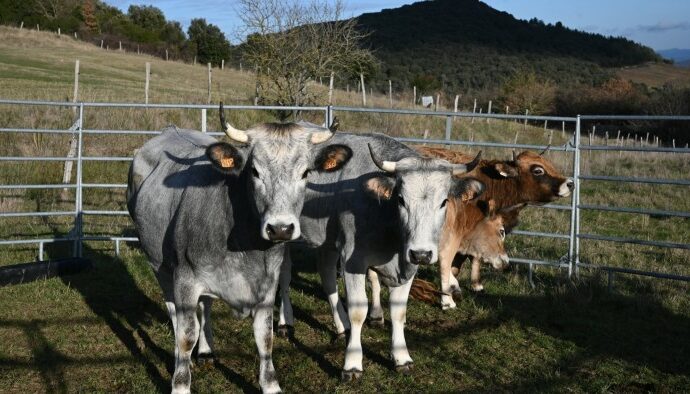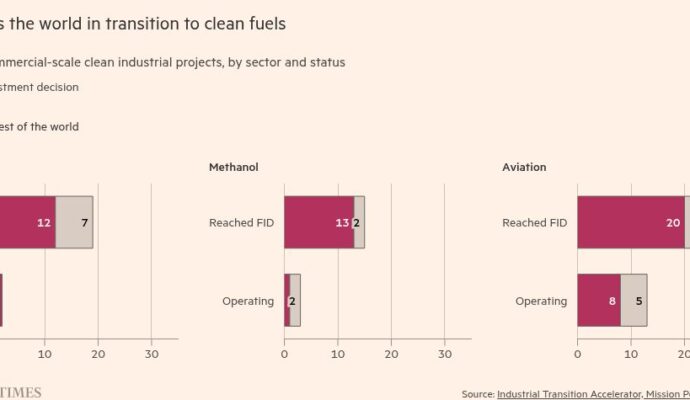
Sir Keir Starmer’s government fatally undermined an investigation into Chinese spying against politicians in Westminster to protect the UK’s commercial and diplomatic relations with Beijing, according to senior UK officials, despite concern that a hostile state had infiltrated the heart of British democracy.
Senior UK officials told the FT that last month’s decision by prosecutors to drop the so-called China spying case came after a huge dispute that pitted Starmer’s international security advisers and the Foreign Office against the Home Office, with the latter wanting to press ahead with the case.
Senior government figures believe the dispute originated over a desire among the security advisers and Foreign Office not to upset China, with the UK seeking to improve ties with its third-largest trading partner.
The prosecution fell apart after security officials said they would not provide testimony that China could be defined as an “enemy”, an important element for a prosecution under the Official Secrets Act, which the alleged spies had been charged with breaching.
This was despite UK prosecutors — backed by testimony from one of the same UK security officials — arguing earlier this year in a hostile state spying case that an enemy included “any country which presents a threat to our national security”.
The National Security Strategy, published in June, warned that China had increased “espionage” and “interference in our democracy and the undermining of our economic security” in recent years. However, it also cautioned that the UK wanted to increase trade.
The document — overseen by the national security adviser Jonathan Powell and informed by the government’s unpublished “China audit” — also warned that the UK needed to “reduce the risks of misunderstanding and poor communication” which had characterised its relations with Beijing in recent years.
The latest revelations are likely to provoke further fury in Westminster after the collapse of the spying case last month, when the Crown Prosecution Service said it would not proceed with charges against Christopher Cash, 30, from Whitechapel in east London, and Christopher Berry, 33, from Witney in Oxfordshire.
Cash had been a parliamentary researcher with a hawkish China research group at the time of his arrest, and was accused of having allegedly passed information on MPs to a Chinese spy.
Both men have always fiercely defended their innocence. The pair had been due to go on trial this month.
In the past week, parliament’s justice and home affairs select committees, led by Labour MP Andy Slaughter and Conservative MP Dame Karen Bradley respectively, demanded further explanation from prosecutors about why they had dropped the case.
The fight between the Home Office, responsible for domestic security, and the Foreign Office and Starmer’s security advisers blew up at a meeting in September, four officials said.
The meeting was attended by Powell, the deputy national security adviser Matthew Collins, the Foreign Office’s permanent under-secretary Olly Robbins and Home Office officials.
That group allegedly informed the Home Office that Collins would not be able to testify that China was an enemy, the officials said.
Powell, a veteran of the Blair era who has been brought back by Starmer to bolster his foreign policy team, chaired the meeting, two officials said.
Collins had previously given a statement in an earlier espionage case prosecuted under the Official Secrets Act involving Bulgarian nationals spying on behalf of Russia in the UK.
At that trial, Collins told the court that the presence of individuals in Britain operating under the direction of the Russian intelligence services was “inherently prejudicial to the safety or interests of the UK”.
This formed the basis for the prosecution’s argument that Russia was an enemy. Six Bulgarian nationals were found guilty of spying for Russia in the trial that police described as one of the most significant espionage cases to be brought in Britain in decades.
On Sunday other government officials insisted to the FT that the CPS had simply reviewed evidence it had already received in 2023 and decided it was not as strong as first thought.
They said neither Collins nor Powell had withdrawn evidence and that Collins had never pledged to describe China as an enemy in court when he first submitted his evidence to the CPS under the previous government.
Prosecution experts said the unwillingness of the UK’s security advisers to label China an “enemy” in court probably left the CPS with little choice but to abandon the prosecution.
Stephen Parkinson, the director of public prosecutions, has said, however, that when the charging decision was first made it had “correctly” concluded “there was sufficient evidence to prosecute” but since then there had been an “evidential failure”, without elaborating.
A Cabinet Office spokesperson said there had been no “material change in the evidence provided by the government” and said it was “totally inaccurate” to suggest Powell “took any decisions about the content of the witness’s evidence”.
The government has consistently said the decision not to prosecute was made by the CPS “independently”.
Alicia Kearns, one of the MPs who was due to testify, said the prime minister had questions to answer and the government needed to “disclose the decision-making process to the British people in whose interest the prosecution was brought”.
“Starmer had the power to make sure the trial could proceed,” Kearns told the FT.
“Either his ministers or most senior advisers acted with his full knowledge, or in contradiction and contempt of his wishes to spike the CPS’s ability to prosecute — which is it?”
The Cabinet Office spokesperson said it was “completely false” to say that there was “pressure” from Downing Street to kill the case.


